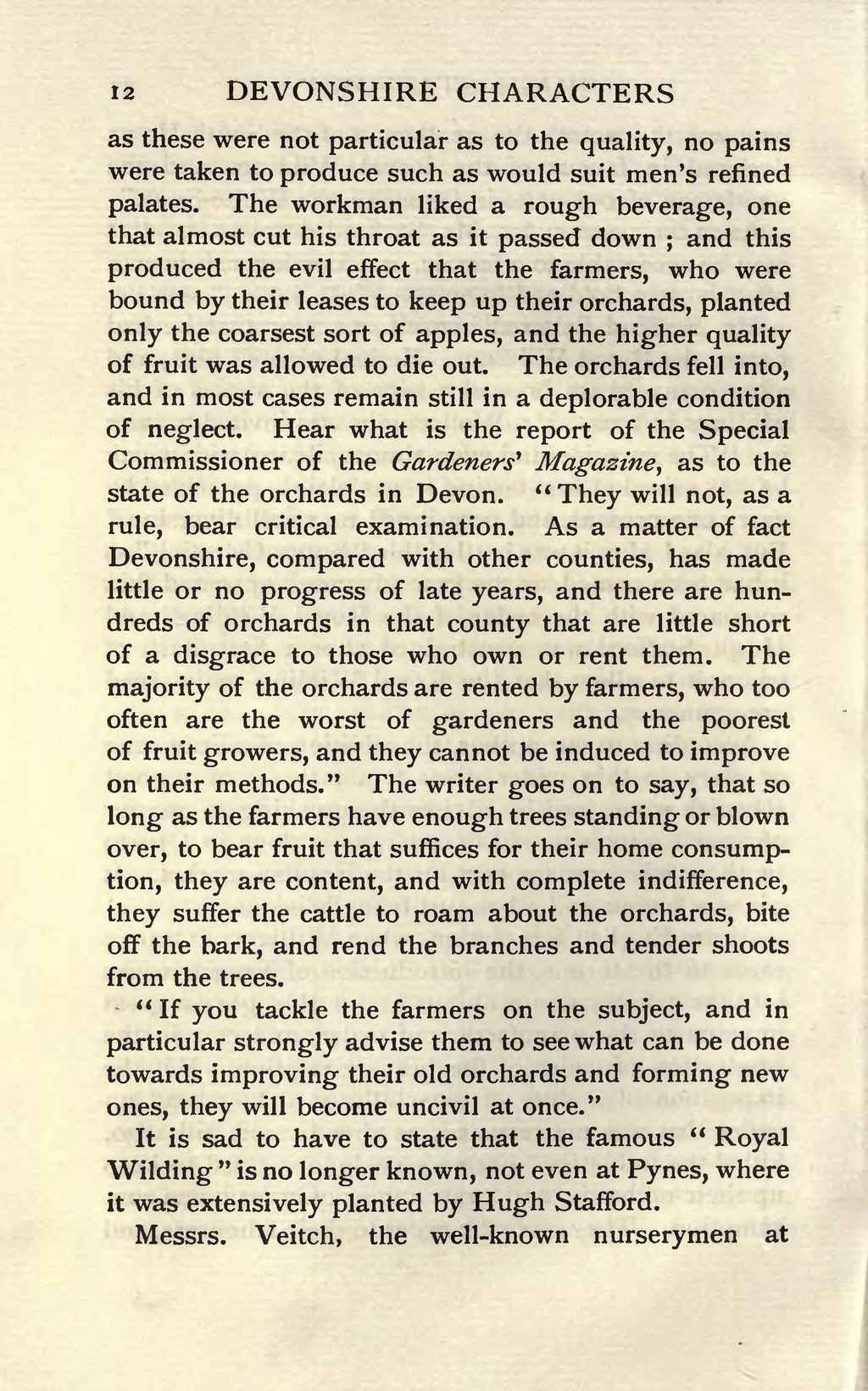as these were not particular as to the quality, no pains were taken to produce such as would suit men's refined palates. The workman liked a rough beverage, one that almost cut his throat as it passed down; and this produced the evil effect that the farmers, who were bound by their leases to keep up their orchards, planted only the coarsest sort of apples, and the higher quality of fruit was allowed to die out. The orchards fell into, and in most cases remain still in a deplorable condition of neglect. Hear what is the report of the Special Commissioner of the Gardeners' Magazine, as to the state of the orchards in Devon. "They will not, as a rule, bear critical examination. As a matter of fact Devonshire, compared with other counties, has made little or no progress of late years, and there are hundreds of orchards in that county that are little short of a disgrace to those who own or rent them. The majority of the orchards are rented by farmers, who too often are the worst of gardeners and the poorest of fruit growers, and they cannot be induced to improve on their methods." The writer goes on to say, that so long as the farmers have enough trees standing or blown over, to bear fruit that suffices for their home consumption, they are content, and with complete indifference, they suffer the cattle to roam about the orchards, bite off the bark, and rend the branches and tender shoots from the trees.
"If you tackle the farmers on the subject, and in particular strongly advise them to see what can be done towards improving their old orchards and forming new ones, they will become uncivil at once."
It is sad to have to state that the famous "Royal Wilding" is no longer known, not even at Pynes, where it was extensively planted by Hugh Stafford.
Messrs. Veitch, the well-known nurserymen at

